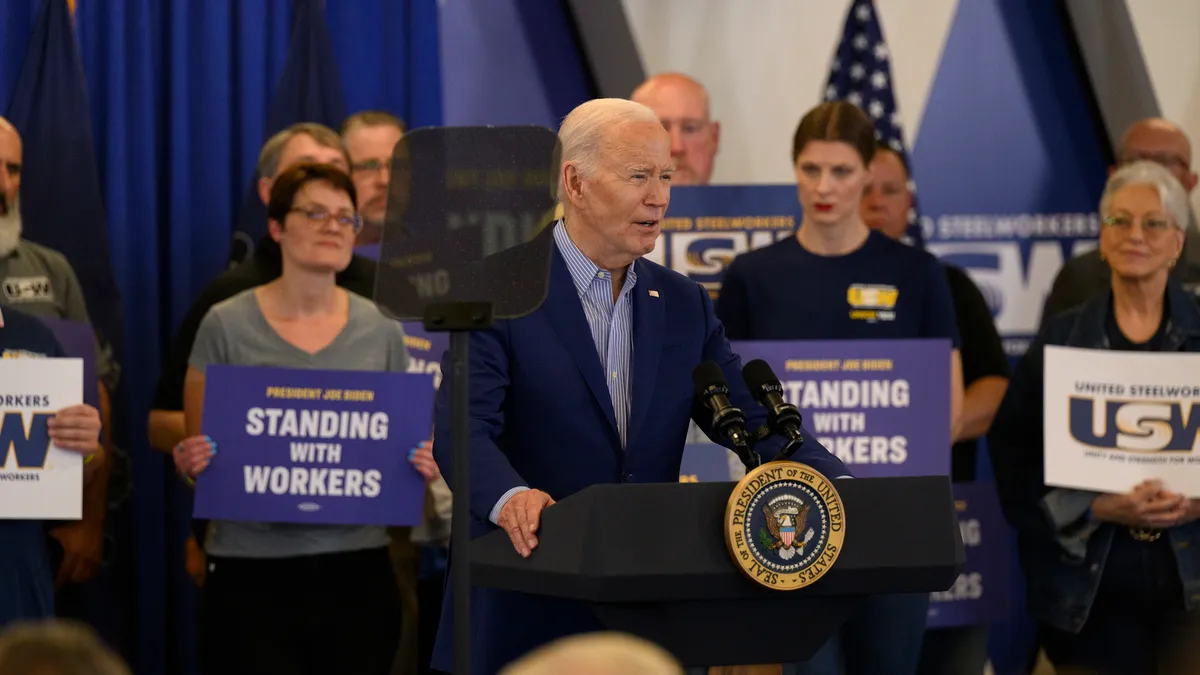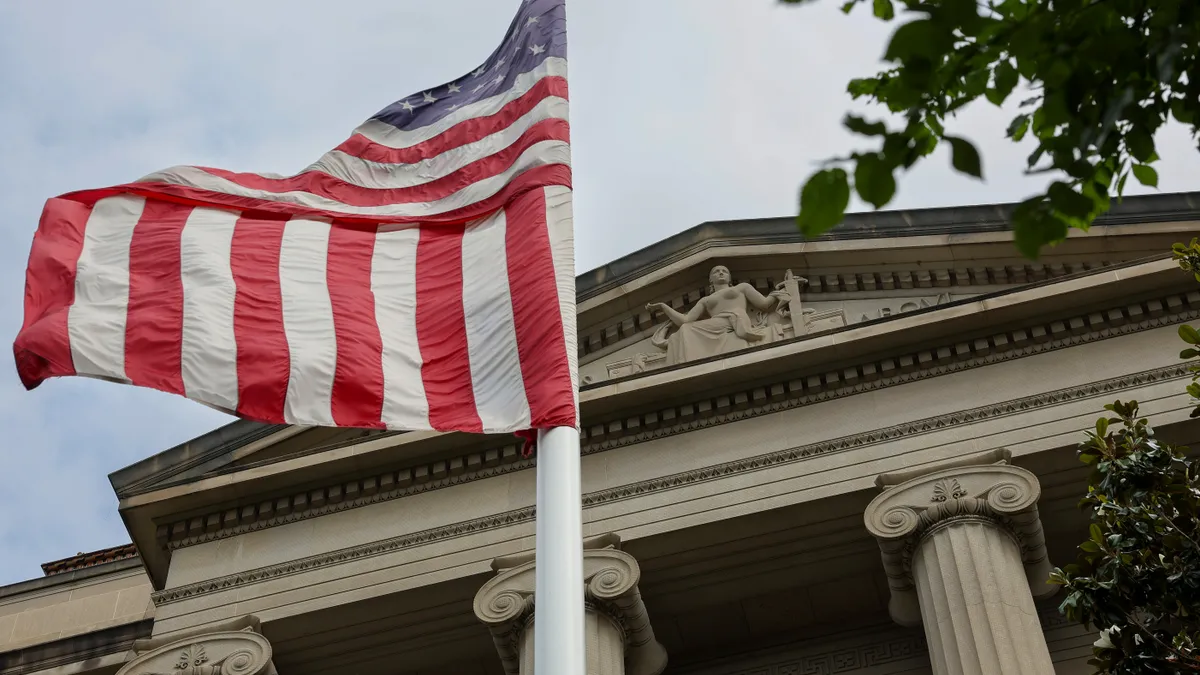President Joe Biden’s recent executive action to bolster registered apprenticeships as a pathway to high-paying jobs — including union jobs — has many implications for contractors that perform federally funded work.
The March executive action — which is not legislation — directs federal agencies to reduce barriers and create pathways into federal employment through registered apprenticeships and expands registered apprenticeships’ use through grants and contracts. It also re-establishes within the federal government labor management forums, tools used by union members and management to jointly improve their workplaces.
In addition, the Department of Labor is considering a rule change that would revise regulations for registered apprenticeships by updating worker protections and better establishing pipelines to registered apprenticeship programs.
Although the Biden administration’s efforts could spell good news for a labor-strapped industry like construction, both fans and critics of these moves also see them as a push to support unions, a key part of Biden’s platform.
The executive order is designed to broaden the workforce, but it also favors union builders and may mean open shop contractors have to read up on new compliance, experts told Construction Dive.

About two-thirds of registered apprenticeships are union programs, said John Logan, professor and department chair of labor and employment studies at the San Francisco State University Lam Family College of Business.
The order aims to create more registered apprenticeship programs across a variety of industries in the federal workforce and encourages agencies to give preference to employers on publicly funded projects that hire workers who have participated in these programs. It also directs federal agencies to identify where they could include requirements or incentives for grant recipients or contractors to use workers who participate in registered apprenticeships.
Since Biden took office, his administration has invested more than $440 million to expand the capacity of the registered apprenticeship system, which has supported the training of more than 1 million apprentices across the country, per the executive order’s announcement.
Impact on contractors
Not every construction-related group appreciates the apprentice push. In a statement, Ben Brubeck, ABC vice president of regulatory, labor and state affairs, said that while the association fully supports government-registered apprenticeship programs, the DOL’s proposed rule change is “illegal, unnecessarily costly and burdensome” and will “exacerbate the industry’s labor shortage.”

Ed Seglias, partner and co-CEO of construction law firm Cohen Seglias, said the order is “detrimental” for non-union employers who have to comply with unfamiliar regulations, something harder for smaller contractors.
“This is going to cause more harm than benefit because it’s going to certainly increase cost for employers, but I also think it will put many non-union and small contractors at a disadvantage,” said Seglias. “With any massive set of regulations, the little guy is least equipped to deal with it.”
How much will actually change is left to be seen. It may not be as impactful as others fear, according to Andrew MacDonald, co-chair of the labor management relations practice at Philadelphia-based law firm Fox Rothschild.
“The executive order can only do so much,” MacDonald said, adding that while most apprenticeship programs are union, there are also industry groups and company-by-company programs that should be covered by this executive order.

For those non-union apprenticeship programs, he said geographical gaps in availability could present a problem, especially if companies can’t find apprentices ready for a federal project.
Contractors always need to be careful about making sure they’re in compliance if they’re working on a federal project, he said.
“If someone’s not registered in an apprenticeship program, it can cause issues if you’re trying to get paid by the government,” he said, which can withhold pay or file a legal challenge saying a contractor wasn’t entitled to a payment received.
And although the executive order does not shut out non-union apprenticeship programs, it clearly tips the scales in favor of organized labor.
“The Biden administration would say this is true to a larger extent and not just about favoring construction unions. It’s actually about favoring well trained, well paid jobs in this sector,” Logan said. “But the reality is that two-thirds of these registered apprenticeships are union programs, and so by using federal monies to incentivize grant recipients who use these registered apprenticeships, it does in fact also help the construction unions and members of construction unions.”






















